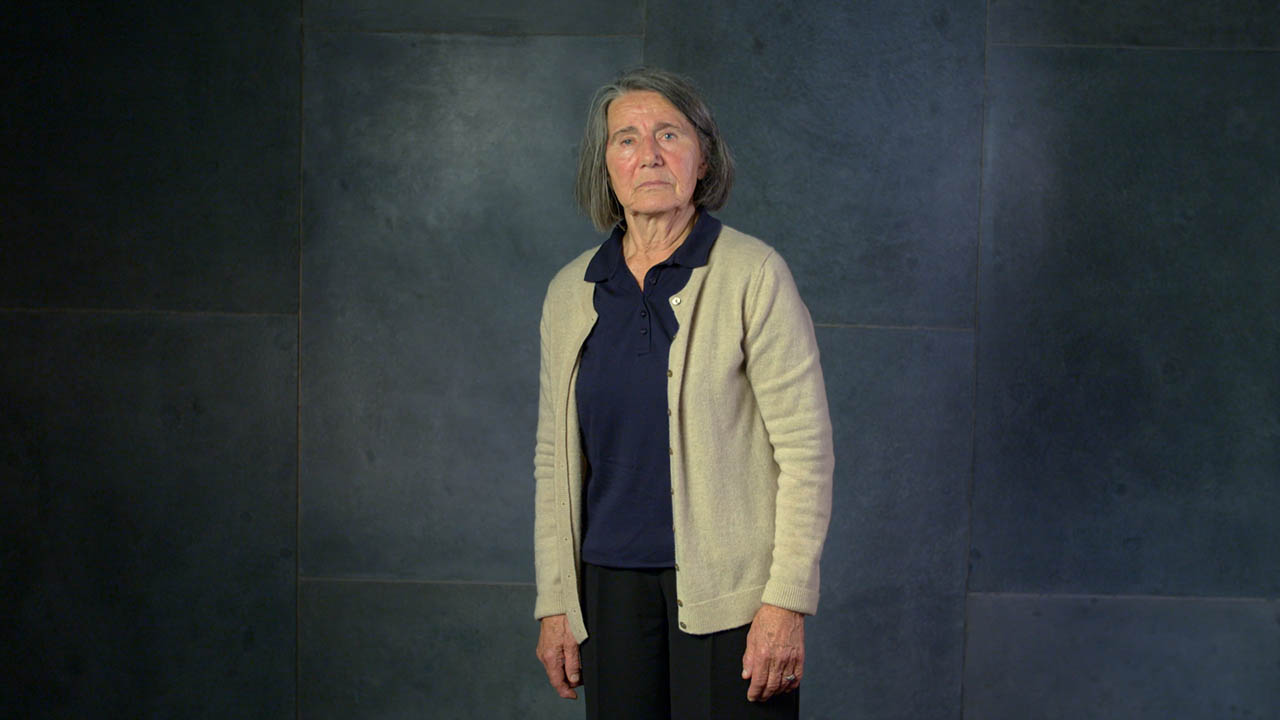|
|
1
|
Introduction Remzija Suljic
|
|
|
|
2
|
Birth, family and childhood in Bosnia
|
|
|
|
|
2.1
|
Moves and memories of childhood in Bijeljina
|
|
|
|
|
2.2
|
Life in the country-side, agriculture
|
|
|
|
|
2.3
|
Siblings
|
|
|
|
|
2.4
|
The father
|
|
|
|
|
2.5
|
Farming work
|
|
|
|
|
2.6
|
School
|
|
|
|
|
2.7
|
Further education as a teacher
|
|
|
|
3
|
Marriage
|
|
|
|
|
3.1
|
Meeting the husband
|
|
|
|
|
3.2
|
Letter from future husband
|
|
|
|
|
3.3
|
Getting together
|
|
|
|
|
3.4
|
First impressions of future husband
|
|
|
|
|
3.5
|
Away from the family and move to Srebrenica
|
|
|
|
4
|
Working as a teacher
|
|
|
|
5
|
Birth of children
|
|
|
|
6
|
Responsibilites and difficulties of a young mother
|
|
|
|
7
|
Ethnical and religious diversity and living together before the war
|
|
|
|
8
|
The war
|
|
|
|
|
8.1
|
Gatherings of radical people and change in society
|
|
|
|
|
8.2
|
The escape of the residents
|
|
|
|
|
8.3
|
Para-militaries and people's army, releasing the weapons and lootings
|
|
|
|
|
8.4
|
Communication in the family in times of crisis and uncertainty
|
|
|
|
|
8.5
|
Murder of the mother during the war
|
|
|
|
|
8.6
|
Radiocommunication after one year
|
|
|
|
|
8.7
|
To survive huge starvation and coldness
|
|
|
|
|
8.8
|
Guerillas and similarities with second world war
|
|
|
|
|
8.9
|
Promises of the protected area
|
|
|
|
|
8.10
|
Mortar attack at the protected area
|
|
|
|
|
8.11
|
Surviving shootings
|
|
|
|
|
8.12
|
In the hospital
|
|
|
|
|
8.13
|
Cultural commitment, memorial for the murder victims of the war
|
|
|
|
|
8.14
|
Devastation of the mosques
|
|
|
|
|
8.15
|
Search for meaning and psychological and emotional survival
|
|
|
|
|
8.16
|
Family and relatives who died in the war
|
|
|
|
|
8.17
|
Selection by armes radicals, rape and murder
|
|
|
|
|
8.18
|
Intervention and bombardement by NATO
|
|
|
|
|
8.19
|
On the way to Potočari
|
|
|
|
|
8.20
|
Meeting UN-soldiers and people's army: in front of the camera
|
|
|
|
|
8.21
|
After the camera is off: empty promises
|
|
|
|
|
8.22
|
Evacuation of people from Potočari
|
|
|
|
|
8.23
|
On the bus and truck, abuse and rape by serbian soldiers
|
|
|
|
|
8.24
|
8 kilometers on foot to the bosnian army
|
|
|
|
|
8.25
|
Arrival in Dubrave
|
|
|
|
|
8.26
|
Inhumane conditions of a refugee
|
|
|
|
|
8.27
|
Move of the son to Germany and search for the mother
|
|
|
|
|
8.28
|
Making contact with the son through radio
|
|
|
|
9
|
Germany
|
|
|
|
|
9.1
|
Escape to Germany without documents
|
|
|
|
|
9.2
|
Uncertainty, problems with legal status and bureaucracy
|
|
|
|
|
9.3
|
Deportation
|
|
|
|
|
9.4
|
Support and therapy because of trauma and depression
|
|
|
|
|
9.5
|
Experiences of Berlin
|
|
|
|
|
9.6
|
Commitment in the centre of South-East-Europe
|
|
|
|
10
|
Bosnia
|
|
|
|
|
10.1
|
Visiting Bosnia and being in shock
|
|
|
|
|
10.2
|
Change of the writingfrom Latin to Cyrillic and alienation
|
|
|
|
|
10.3
|
Visiting the old house in Bosnia
|
|
|
|
11
|
The importance of telling the history of the bosnian war
|
|
|
|
12
|
Discussion around treatment of refugees in Germany
|
|
|
|
13
|
The war: a big machine of money-making
|
|
